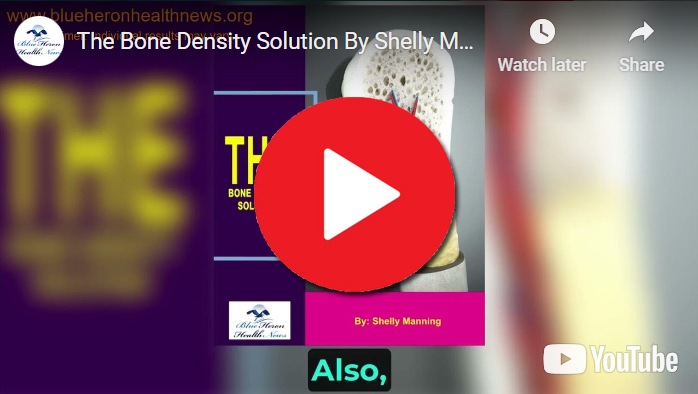
The Bone Density Solution by Shelly Manning As stated earlier, it is an eBook that discusses natural ways to help your osteoporosis. Once you develop this problem, you might find it difficult to lead a normal life due to the inflammation and pain in your body. The disease makes life difficult for many.
How can one manage bone density with chronic pain conditions?
Managing bone density while dealing with chronic pain conditions can be challenging, but it’s essential to prevent further complications like osteoporosis or fractures. Here’s a comprehensive approach to managing bone density in the context of chronic pain:
1. Comprehensive Medical Management
- Consult with Healthcare Providers: Regular consultations with a healthcare provider, such as a rheumatologist or endocrinologist, are essential. They can tailor a management plan that addresses both chronic pain and bone density. This might include regular bone density tests (DEXA scans) to monitor changes and adjust treatments accordingly.
- Medications: Certain medications for chronic pain, such as corticosteroids, can negatively affect bone density. Discuss alternative pain management strategies with your doctor, such as non-steroidal anti-inflammatory drugs (NSAIDs) or other medications that have a lesser impact on bone health.
2. Diet and Nutrition
- Calcium and Vitamin D: Ensure adequate intake of calcium (1,000 to 1,200 mg daily) and vitamin D (600 to 800 IU daily) through diet and supplements if necessary. Foods rich in calcium include dairy products, leafy greens, and fortified foods, while vitamin D can be obtained from sunlight exposure and foods like fatty fish, fortified dairy, and eggs (Labiotech.eu) (Med Xpress).
- Balanced Diet: A diet rich in fruits, vegetables, lean proteins, and whole grains supports overall health and bone density. Magnesium, vitamin K, and phosphorus are also important nutrients that contribute to bone health (FIU News).
3. Physical Activity and Exercise
- Weight-Bearing Exercises: Engaging in weight-bearing activities like walking, dancing, or light resistance training can help maintain or improve bone density. These exercises stimulate bone formation by putting stress on the bones, which encourages bone strengthening.
- Adapted Exercises: For those with chronic pain, it’s important to adapt exercises to prevent exacerbating pain. Low-impact activities like swimming, water aerobics, or cycling might be more suitable. Physical therapy can help design a personalized exercise regimen that considers both bone health and chronic pain management (Labiotech.eu).
- Physical Therapy: A physical therapist can help manage chronic pain while promoting exercises that strengthen bones. Therapy might include range-of-motion exercises, strength training, and techniques to improve posture, which can prevent bone-related complications.
4. Pain Management Techniques
- Non-Pharmacological Pain Management: Techniques such as heat therapy, cold therapy, massage, acupuncture, and relaxation techniques (like deep breathing or meditation) can help manage pain without relying on medications that might affect bone density.
- Medication Review: Regularly review pain medications with your doctor to assess their impact on bone health. If medications like corticosteroids are necessary, discuss options to counteract their bone-density-lowering effects, such as bisphosphonates or other bone-protective agents (FIU News).
5. Lifestyle Modifications
- Quit Smoking and Limit Alcohol: Both smoking and excessive alcohol consumption are risk factors for bone loss. Quitting smoking and reducing alcohol intake can help maintain bone density and improve overall health (Med Xpress).
- Fall Prevention: Preventing falls is crucial for those with low bone density. Ensure your living environment is safe, with secure handrails, non-slip mats, and good lighting. Assistive devices like canes or walkers can also be beneficial if balance is a concern (Labiotech.eu).
6. Regular Monitoring and Testing
- Bone Density Testing: Regular DEXA scans can monitor bone density over time and help assess the effectiveness of interventions. These tests can guide adjustments in treatment plans to ensure optimal bone health (FIU News).
- Biomarkers: In some cases, healthcare providers might monitor biomarkers that indicate bone turnover, such as serum calcium, vitamin D levels, or bone-specific alkaline phosphatase. This can provide more detailed information about bone health and the effects of treatments.
7. Mental Health Support
- Counseling and Support: Chronic pain and the risk of bone-related complications can lead to anxiety or depression. Mental health support, through counseling or support groups, can help manage the psychological aspects of chronic pain and encourage adherence to bone health strategies.
- Stress Management: Chronic stress can negatively impact bone health by increasing the production of cortisol, a hormone that can lead to bone loss. Incorporating stress management techniques such as mindfulness, yoga, or tai chi can support both mental and physical health (Labiotech.eu).
8. Bone-Protective Medications
- Osteoporosis Medications: If bone density is declining despite lifestyle interventions, medications such as bisphosphonates, selective estrogen receptor modulators (SERMs), or monoclonal antibodies like denosumab may be prescribed. These medications help to maintain or increase bone density and reduce the risk of fractures (FIU News).
- Pain and Bone Health Balance: In some cases, the benefits of certain pain medications may outweigh the risks to bone health. A balanced approach, including the use of bone-protective medications alongside necessary pain management, can be effective.
Conclusion
Managing bone density in the context of chronic pain requires a holistic approach that addresses both conditions simultaneously. By combining medical management, tailored exercise, proper nutrition, lifestyle changes, and regular monitoring, individuals can maintain their bone health while effectively managing chronic pain. Collaborating closely with healthcare providers ensures that all aspects of health are considered and optimized for long-term well-being.
The Bone Density Solution by Shelly Manning As stated earlier, it is an eBook that discusses natural ways to help your osteoporosis. Once you develop this problem, you might find it difficult to lead a normal life due to the inflammation and pain in your body. The disease makes life difficult for many.
